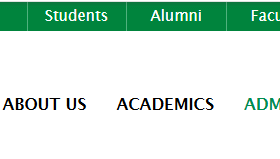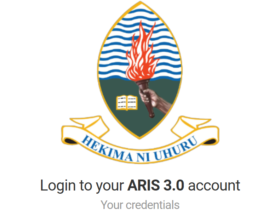Ways to Listen and Understand Lectures: Welcome to the academic arena, where the ability to pay attention, listen actively, and take effective notes plays a pivotal role in understanding and retaining valuable information in your lectures . Whether you’re a seasoned student or just stepping into university life, honing these skills can significantly impact your academic success. Let’s delve into the best strategies for cultivating attentive ears and note-taking prowess during lectures.
Best 9 Ways to Listen And Understand Lectures
The followings are best 9 Ways to Listen and Understand Lectures
1. Come Prepared:
Before the lecture begins, take a few minutes to review any relevant materials or readings. For Effective Strategies for Engaged and Meaningful Lecture Familiarizing yourself with the content beforehand allows you to follow along more easily and grasp the key concepts presented. This is important to any student from any university such as IFM,DUCE,UDSM,ARDHI,MZUMBE,SAUT,SUA.
2.Engage in Active Listening:
Active listening is the foundation of Effective Strategies for Engaged and Meaningful Lecture. To master this skill, follow these guidelines:
Eliminate Distractions: Find a quiet, comfortable spot in the lecture hall, away from distractions. Silence your phone and close unnecessary tabs on your laptop.
Maintain Eye Contact: Focus on the lecturer, maintain eye contact, and visually connect with the material being presented.
Use Non-Verbal Cues: Nodding or other non-verbal cues signal your engagement and encourage the lecturer to continue.

3. Adopt Effective Note-Taking Techniques:
Taking notes is an art that, when done right, becomes a powerful tool for comprehension. Try these techniques:
Cornell Method: Divide your paper into three sections – cues, notes, and a summary. Jot down keywords and concepts, then write detailed notes. Summarize the information at the end of the lecture.
Mind Mapping: Use visual representations to connect ideas. Start with the main concept in the center and branch out with related details.
Outlining: Organize information hierarchically. Use bullet points or numbers to denote main topics and subpoints.

4. Leverage Technology Wisely:
Embrace technology to enhance your note-taking process:
Digital Note-Taking Apps: Apps like OneNote, Evernote, or Notion offer flexibility. Organize your notes, insert diagrams, and easily search for information.
Recording Lectures: If permitted, record lectures to capture nuances and revisit key points later.
5. Develop a Shorthand System:
Creating a personal shorthand system can significantly improve your note-taking speed:
Abbreviations: Shorten common words into abbreviations. For example, ‘info’ becomes ‘i,’ and ‘development’ becomes ‘dev.’
Symbols: Develop symbols for recurring concepts, making it quicker to jot down information.
6. Prioritize Key Information:
Not everything the lecturer says is of equal importance. In Effective Strategies for Engaged and Meaningful Lecture identifying and prioritizing key information is very important:
Main Ideas vs. Details: Distinguish between main ideas and supporting details. Focus on the overarching concepts.
Repetition: If a point is emphasized or repeated, it’s likely crucial. Ensure such information is well-captured in your notes.
7. Review and Revise:
Your notes are a dynamic tool for learning, not just a record. In order to archive Effective Strategies for Engaged and Meaningful Lecture, Regularly review and revise
Daily Review: Spend a few minutes each day reviewing your notes to reinforce learning.
Create Study Guides: Summarize key points, turning your notes into condensed study guides.
8. Actively Participate in Discussions:
Engaging in class discussions promotes active learning:
Ask Questions: Don’t hesitate to seek clarification. Asking questions not only benefits you but also signals engagement to your peers and lecturer.
Participate Actively: Contribute to discussions. Explaining concepts to others reinforces your understanding.
9. Stay Organized:
Maintain a systematic approach to your notes is also another key to effective strategies for engaged and meaningful learning
Date Your Notes: Ensure each set of notes is dated. This helps in chronological organization.
Use Folders or Notebooks: Keep notes organized by subject or date in physical or digital folders.
The journey of attentive listening and effective note-taking is a continuous process. As you navigate through lectures, experimenting with various techniques and finding what works best for you is key. Embrace the learning experience, refine your methods, and watch as your understanding and retention of course material soar to new heights. Happy note-taking!
READ ALSO: The best University of Dar es Salaam Orientation Program 2023
How to Access And Use the Resources Available at The UDSM Salaam Library












Leave a Reply